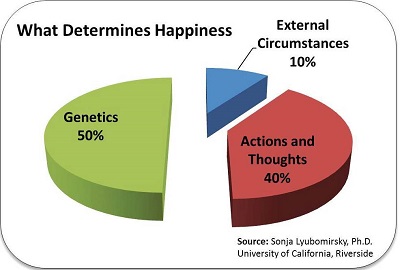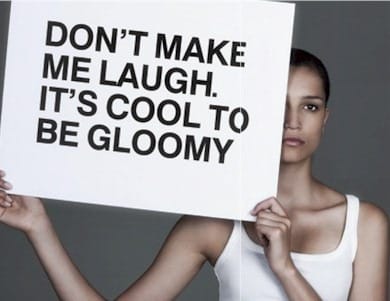Happiness – the final objective of every human endeavor, and yet the most elusive. Happiness is what we all are seeking all the time. As its meaning changes like the colors of a chameleon, we continue to play a cat and mouse game with it.
What Is Happiness?
The meaning of happiness is different for everyone. Googling the term happiness offers scores of quotes and explanations of happiness, but there seems to be no exact definition of the term. So what is happiness?
Defining it’s subjective nature, the Dalai Lama says happiness is not ready made, it comes from your own actions. Abraham Lincoln said most folks are as happy as they make up their mind to be.
If happiness is what we make of it, is happiness just a merry compromise – a middle ground where you give up some and keep some in order to be truly happy?
The Happy Gene – You Are What You Are Made Up Of
Often we blame ourselves for being pessimistic and for failing to hold on to happiness. The reason why some people are eternally optimistic and others are not goes back to our genetic roots. Mother Nature has a much greater role to play in shaping our personalities than we realize.
Scientists at the UCLA have confirmed how our genes affect our temperament and specifically our happiness. The oxytocin receptor gene (OXTRG) is a gene that regulates the measure of optimism and the feel good factor in us. Apparently, if you’re missing certain nucleotides on the OXTRG, you are much more likely to see the glass as half full.
On the contrary if you have them, researchers say, you’re likely to have much lower levels of optimism, self-esteem and basically you are more prone to depressive thoughts.
Learning this affirmed my belief that a large part of our personalities and the way we see the world is inherent. Along with the way we look on the outside, we also inherit the way we are on the inside.
Nature Versus Nurture
The argument of nature versus nurture is a long standing one. Numerous studies have been conducted to ascertain how the quality of nurturing especially during a child’s formative years affects the kind of person he grows into.
Philosopher John Locke propounded the “blank slate” or tabula rasa theory that proposes that humans develop behavioral traits solely from environmental influences. This theory has been over-turned by modern studies, refuelling the debate between nature and nurture.
Can We Change Who We Are?
While our genes may determine our basic nature, mother nature has given us the ability to change certain aspects of ourselves that we don’t like. This is where the role of nurture comes in, the way we are nurtured during our childhood and the way we nurture ourselves as adults.
In my personal journey I have come across people who are able to see the glass half full in almost every situation. And then you have some who find it much harder to see the brighter side of things. If you look within yourself, you will find yourself broadly falling into one of these two categories.
Some people, it seems, find refuge in pessimism. The less you are hopeful the less your chances of getting hurt. But there is a thin line between being a realist and a pessimist. On the other hand, being optimistic doesn’t guarantee the best outcome but it arms you with the ability to perceive problems positively.
If you find that you are pessimistic and are prone to depressive thoughts and are a victim of the glass half empty syndrome, do not worry there is hope.
Unlike physical attributes, temperament and mental make-up are more malleable. Healthy living, exercise, positive thoughts and actions are all steps towards a happier existence.
We cannot always choose the inherent and external factors affecting us, but we can control how we are influenced by them. This takes practice, but with this practice maybe life can get happier. But that’s optimism talking!




